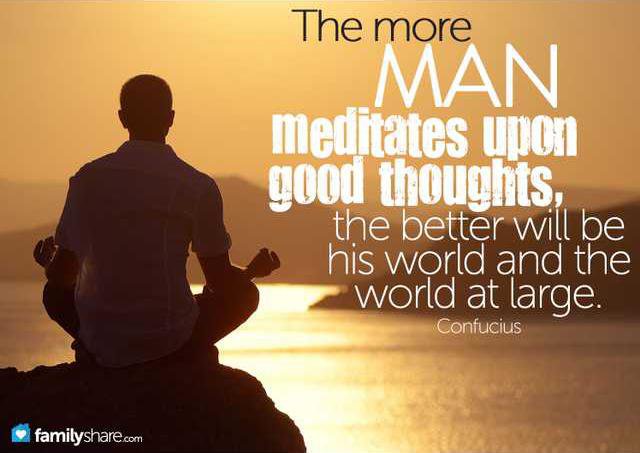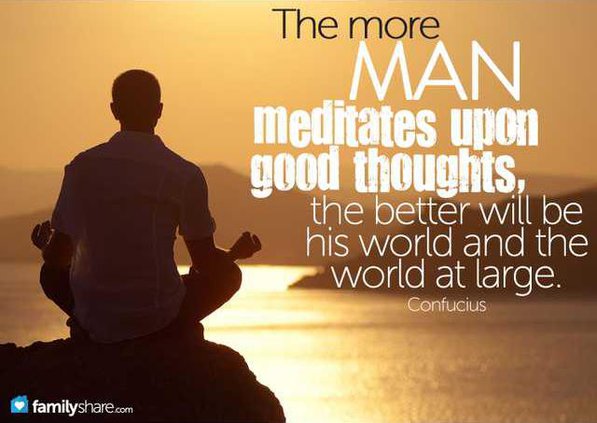We all go through times when we feel worn down. As parents, spouses and family members, we're often left feeling like we have too many obligations and not enough of ourselves to go around. When you find yourself needing a pick-me-up, meditation is a great place to turn. However, many people shy away from the idea of meditation thinking that it only involves bendable yogis chanting "om" over and over. You can make meditation work in your life, after learning about what style of meditation will work for you.
What meditation looks like
Move past your preconceived notions of meditation. There are as many correct ways to meditate as there are people in the world; the key is finding the right type for you. While many meditation adherents use traditional yogic meditation, there is much more to meditation than simply sitting cross-legged and trying to clear your mind.
Mindfulness meditation allows you to let your thoughts follow their own natural course and is especially useful if you feel like your mind is cluttered. In this type of meditation, sit quietly and acknowledge thoughts as they enter your mind without passing any judgement. You simply sit with the thought and accompanying emotion until you can let it go. If you've never tried it before, mindfulness meditation is a freeing experience that lends itself to clarity and insight.
Guided meditation, however, uses a recording or guide to lead your thoughts towards greater relaxation. Common themes of guided meditation are nature or serenity. If you're looking for a quick way to relax, guided meditations are effective and take almost no work on your part. Guided meditation is a great place to start if you're new to meditating.
Still others prefer to direct their thoughts by meditating on images, songs or the written word. Commonly, many religious people choose to meditate on scripture or spiritual writings, a practice that goes beyond merely reading and seeks to find ways to apply spiritual teachings into everyday living. You can also try lying or sitting still while listening to calming music or looking at calming images, making sure to direct your thoughts away from your busy life and onto the soothing stimuli.
How meditation feels
Ideally, meditation brings the practitioner a deeper sense of calm and internal clarity. Meditation should be relaxing and leave you feeling connected to your body and your surroundings. At first, you may find it difficult to leave your problems and distractions aside, but don't give up on meditation too quickly. It takes self-discipline to master meditation no matter what type you try. As with any new endeavor, practice makes perfect, and perfection takes time.
Take some uninterrupted time each day to try meditating. Start with short 5 to 10 minute sessions then gradually increase the length as your concentration improves. Warn family members that you are unavailable during your meditation. Taking a few precious minutes for yourself each day isn't self-serving; it will make you a better parent and spouse.
The power in meditation
If you can stick it out and learn to make meditation work for you, you'll see the powerful force for good that it can be in your life. Meta research done through John Hopkins found that meditation can reduce stress and anxiety, while theAmerican Heart Association asserts that meditation can effectively lower blood pressure in some individuals.
Whatever your reason for meditation, whether it be the health benefits or trying to carve out a few minutes a day for yourself, there is power in it. Meditation leads to a clearer mind, something from which we can all benefit. Take steps to reduce your stress before you suffer from serious burnout. Busy family life does not have to leave you anxious and overwhelmed. The answer may be as simple as ten minutes a day meditating.
Heather Hale is a fourth-generation Montanan, mom to two crazy boys, and wife to one amazing husband. You can learn more about her eco-conscious lifestyle at moderatelycrunchy.com.








